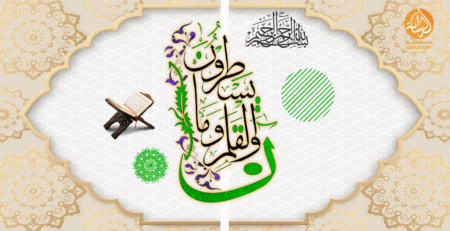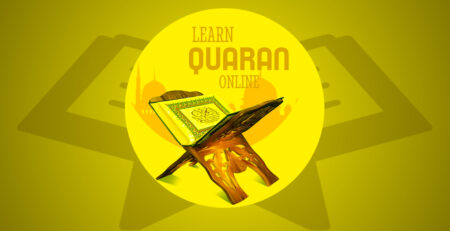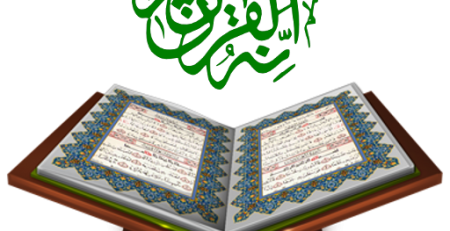The Rise and Evolution of the World of Islam
Introduction to Islam
Islam, one of the world’s major monotheistic religions, traces its origins to the teachings of Prophet Muhammad. Born and raised in Mecca, a city in present-day Saudi Arabia, Muhammad played a pivotal role in spreading the message of Islam, which has since grown to become a global faith with millions of followers worldwide.
Early Life of Prophet Muhammad
Prophet Muhammad was born in Mecca around 570 CE. His upbringing took place in a society marked by tribal divisions and polytheistic beliefs. However, even before his prophethood, Muhammad was known for his honesty, integrity, and compassion, earning him the title of Al-Amin, the trustworthy.
The Beginnings of Islam
At the age of 40, Muhammad received his first revelation from Allah through the Angel Gabriel while meditating in a cave on Mount Hira. This event marked the beginning of his mission as a prophet and the spread of Islam. Initially met with skepticism and opposition in Mecca, Muhammad’s message gradually gained traction, attracting followers who embraced the monotheistic faith.
Expansion of Islam Beyond Saudi Arabia
Despite facing persecution and hostility from the Quraysh tribe, Muhammad continued to preach Islam. The pivotal moment came with the conquest of Mecca in 630 CE, leading to the unification of the Arabian Peninsula under Islamic rule. With the Prophet’s leadership, Islam began to spread beyond Arabia, reaching neighboring regions through military conquests and peaceful means.
Prophet Muhammad’s Leadership
Prophet Muhammad not only conveyed the divine message but also served as a statesman, diplomat, and military leader. His leadership was characterized by justice, compassion, and humility, setting a precedent for governance in Islamic societies. Under his guidance, the Muslim community flourished, establishing Medina as a model of Islamic governance and societal harmony.
Key Teachings of Islam
Central to Islam are the beliefs in the oneness of Allah and the prophethood of Muhammad. The Five Pillars of Islam—Shahada (faith), Salah (prayer), Zakat (charity), Sawm (fasting), and Hajj (pilgrimage)—form the foundation of Muslim practice, emphasizing devotion, charity, and social responsibility.
Challenges Faced by Islam
The spread of Islam was not without challenges. In Mecca, Muhammad faced opposition from the Quraysh tribe, leading to persecution and boycotts against his followers. Moreover, conflicts with neighboring tribes and the Jewish community in Medina posed significant obstacles to the nascent Muslim community.
The Hijra and Establishment of Medina
In 622 CE, faced with increasing hostility in Mecca, Muhammad and his followers migrated to Medina, a city receptive to his message. This event, known as the Hijra, marked the beginning of the Islamic calendar and the establishment of an Islamic state in Medina. Muhammad’s leadership transformed the city into a thriving community based on justice, equality, and mutual cooperation.
Islamic Expansion Beyond Arabia
Following the conquest of Mecca, Islam expanded rapidly, spreading across the Arabian Peninsula and beyond. Through military campaigns and peaceful propagation, Islamic empires emerged, encompassing vast territories from Spain to Central Asia. The spread of Islam was facilitated by trade routes, cultural exchange, and the appeal of its message of monotheism and social justice.
Legacy of Prophet Muhammad
Prophet Muhammad’s legacy transcends time and place, shaping the course of history and influencing diverse aspects of human civilization. His teachings continue to inspire millions of Muslims worldwide, guiding them in matters of faith, morality, and conduct. Moreover, Muhammad’s contributions to law, science, and literature have left an indelible mark on the world’s cultural heritage.
Diversity Within Islam
Islam encompasses a rich tapestry of beliefs, practices, and interpretations. The division between Sunni and Shia Muslims originated from differences over leadership succession after Muhammad’s death. Additionally, various schools of thought and legal traditions within Islam reflect the diversity of Muslim communities worldwide.
Islam in the Modern World
In the contemporary era, Islam remains a vibrant and dynamic force, with over a billion adherents spanning continents and cultures. Despite facing challenges such as Islamophobia and extremism, Muslims continue to make significant contributions to fields ranging from science and technology to art and literature. Islam’s emphasis on social justice, compassion, and equality resonates with people seeking spiritual fulfillment and ethical guidance.
Impact of Islam on Civilization
The influence of Islam extends beyond religious practice, encompassing art, architecture, philosophy, and science. Islamic civilization flourished during the medieval period, fostering advancements in fields such as mathematics, astronomy, and medicine. The legacy of Islamic scholars and thinkers continues to enrich global knowledge and understanding.
Misconceptions and Stereotypes
Despite its rich heritage and contributions, Islam is often misunderstood and misrepresented in mainstream discourse. Misconceptions and stereotypes perpetuate negative perceptions of Islam and Muslims, fueling discrimination and prejudice. Education, dialogue, and interfaith engagement are essential in dispelling myths and fostering mutual respect and understanding.
Conclusion
The rise and evolution of Islam from its humble beginnings in Mecca to a global faith is a testament to the transformative power of Prophet Muhammad’s message. Through perseverance, leadership, and divine guidance, Muhammad laid the foundations of an enduring civilization that continues to shape the world today.
FAQs
- Was Prophet Muhammad the founder of Islam?
- Yes, Prophet Muhammad is considered the final prophet of Islam and the messenger through whom the Quran, the holy book of Islam, was revealed.
- What are the Five Pillars of Islam?
- The Five Pillars of Islam are Shahada (faith), Salah (prayer), Zakat (charity), Sawm (fasting), and Hajj (pilgrimage), which form the core tenets of Muslim practice.
- What is the significance of the Hijra in Islamic history?
- The Hijra, or migration of Prophet Muhammad from Mecca to Medina, marks the beginning of the Islamic calendar and the establishment of the first Islamic state.
- How has Islam contributed to civilization?
- Islam has made significant contributions to art, architecture, science, and philosophy, enriching human civilization through advancements in various fields.
- How can misconceptions about Islam be addressed?
- Misconceptions about Islam can be addressed through education, dialogue, and promoting accurate understanding of the religion and its teachings.










Leave a Reply